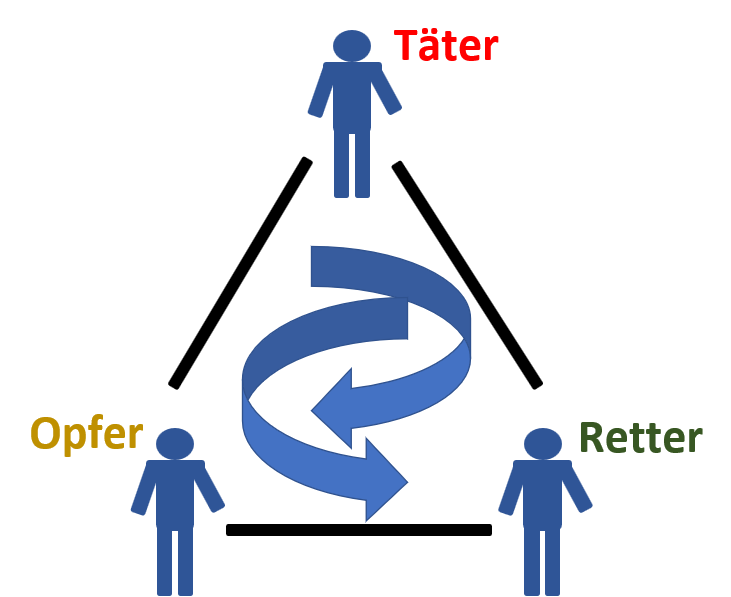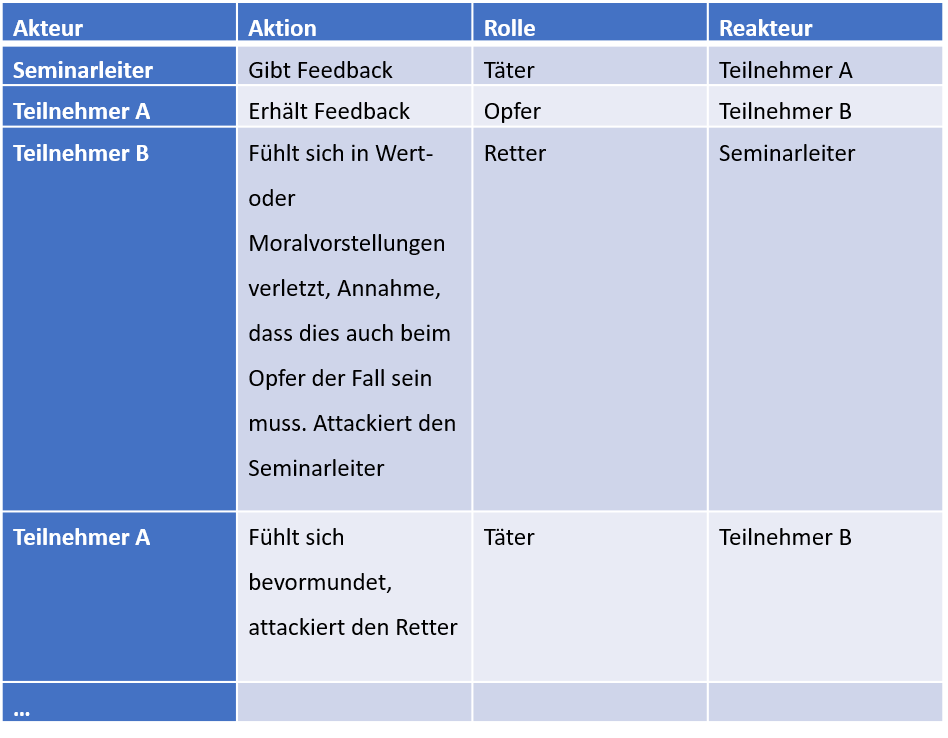Drama Triangle
The drama triangle is the basic pattern of a so-called play in the psychological sense.

The Drama Triangle is a psychological model from Transactional Analysis. It essentially describes the behavior and approach of at least two actors in the course of a conversation.
In the case of Transactional Analysis, these behavioral patterns are referred to as “games”.
A game in the psychological sense is a sequence of individual transactions in which the player (stimulator) pursues a hidden motive and thereby wants to achieve a – mostly destructive – benefit.
What's unique about the drama triangle is that roles can change from moment to moment.

Reference story
Imagine a couple sitting in a restaurant. A lively discussion about an issue ensues when the man suddenly rushes forward and grabs his wife's wrist. A waiter, who has observed the situation in the corner of his eye, wants to rush to the woman's help and tells the man: "Let go of the woman immediately!". In this scene the woman becomes the victim, the man the perpetrator and the waiter the rescuer.
Since the waiter misjudged the situation and the woman replies to his request: "What are you thinking of talking to my husband like that?", the roles within this group are reversed. The man then soothes his wife: "Honey, please, leave the poor waiter alone." Now the man is the rescuer, the waiter is the victim and the woman is the perpetrator.
This reference history makes it easy to see how quickly the roles within a transaction (can) be swapped.
Actors (roles) of the Drama Triangle
Rescuer
The rescuer perceives that the (alleged) victim needs help and acts accordingly. He attacks the perpetrator.
Victim
The victim does not feel like a victim and attacks the rescuer. At that moment, her role changes from victim to perpetrator. The role of rescuer changes to the role of victim.
Perpetrator
The perpetrator supposedly attacks the victim. He makes the victim feel like they're not okay.
Relevance in the seminar context
In the context of a seminar, this pattern is important for the feedback process, among other things. It is important for the trainer not to take on any role. However, in the feedback process, the trainer is the perpetrator at first.
As soon as a game starts in a psychological sense, it has to be stopped immediately.
Interrupt the Game
Once a game has been discovered, it can no longer be completed.
To stop the Game, the coach steps forward and draws attention to himself, e.g. by raising his arms and exclaiming:
„Stop stop stop stop stop! Something very interesting is happening here.“
It is important to radiate positive energy (e.g. by smiling). The game is interrupted because the participants' attention is now focused on the coach. However, the game still has to be uncovered. To do this, the coach has to describe what happened in such a way that none of the players is injured.
A reference story can be told to illustrate the drama triangle. It must then be stated that all actors acted with good intentions. Finally, it is asked whether the situation is now acceptable or clarified for all actors. In this way, all actors feel valued and are willing or willing to participate again.
Example
In the feedback process, a situation that can be described using the drama triangle might look like this:
